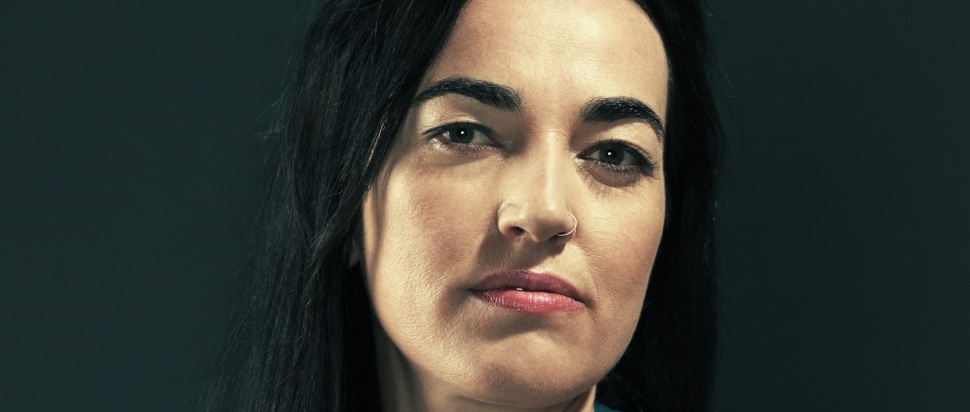An Introduction to Indigenous Contemporary Scene 2019
Indigenous Contemporary Scene Artistic Director Émilie Monnet introduces this year’s programme
What led you to creating the Indigenous Contemporary Scene programme? What was your initial motivation?
Indigenous Contemporary Scene (ICS), is a nomadic platform for the presentation of live arts, fostering dialogue and creative exchange between artists and communities. Founded by Onishka in 2016, ICS amplifies the voices of Indigenous artists internationally. This year we’re super excited to be partnering up with O’Kaadenigan Wiingashk Collective to present ICS Scotland, a month long program of performances, installation and creative conversations featuring Indigenous artists from across Kanata. By joining forces as Indigenous producers, we’re hoping to provide a robust international context for the presentation of the artists’ works, and explore the intersection of their voices within the context of the Edinburgh festivals.
The programme underlines cultural links between Scotland and Canada – could you tell us a little about what you perceive these to be?
Back in 2017, when I first came to Edinburgh, I met many Scottish artists – especially Gaelic-speaking artists – who felt a certain resonance with the history of colonisation back home: they could relate to the government’s efforts at eradicating their languages, suppressing their identity and taking their land away. But history being complex, those who left Scotland to settle in North America also participated in the colonisation process, Scotsman-cum-prime minister of Canada – John A Macdonald earning top honours for his role in the cultural genocide enacted upon Indigenous peoples. The effects of these policies are still felt today and some of the performances we’re bringing to Edinburgh speak to these truths.
There are many layers to our shared histories, and many conversations to be having. Some Indigenous peoples in North America also have Scottish ancestry. The connections to land are memories in our blood, in our families and stored deep within us. We’ll dig into these connections particularly with the Songs of the Land, the performance series we’re co-presenting with the International Book Festival.
Why do you use the word ‘Kanata’ instead of the word ‘Canada’ throughout the programme?
Using the word Kanata reminds us of the Indigenous origins of the lands now known as Canada. Kanata is the Haudenosaunee word for village; it became Canada through the colonial process of dispossession of Indigenous lands, identity and languages. It’s also referring to Kanyen’kehaka visual artist Greg A. Hill’s ongoing Kanata Project. He uses parody and humour to turn the tables on this part of colonial history and entangle a simplified nationalism, creating space for Indigenous presence. More than anything, it’s an opportunity to start conversations and centre them from an Indigenous perspective.
There is a wide array of performance and artist within the programme – how did you go about putting them together? What were you looking for in your artists?
Of course, many of the performances we are presenting are politically engaged because they speak to our truths, to the urgency of the realities we face today, and it’s far from the glossy image Canada projects internationally. But the programming also makes room for laughter, witty humour and great storytelling. Laughter is an essential part of how we interact with one another, it’s medicine, and sharing our stories is a way to generate awareness and understanding towards mutual respect.
Overall, audiences will gain new insights into our realities and it is hoped this will inspire an engaged dialogue. This aspect is important, and at the heart of ICS: we want to engage, connect, share. ICS presents art that speaks to your heart, mind and spirit. There are many stellar artists in our community and we want the world to know about them. This programme is a glimpse into this rich and complex creative matrix.
What will the context of the Edinburgh festivals bring to the presentation?
We want to have these conversations in a global context because it’s important to create more solidarity, friendships and allyship everywhere. The Edinburgh Festivals form the most powerful festival coalition in the English-speaking world and to be able to carve a space for these conversations to take place is very exciting because of the potential of it being both inclusive and expansive. We offer an Indigenous lens to global issues. It is both an act of sharing and speaking our truths; a call to collective creative action. The arts have much to offer in envisioning and creating other kinds of spaces that support reciprocity and co-existence, and for generating meaningful exchange. There will be many of us Indigenous artists in Edinburgh at this time; having this critical mass will be inspiring, stimulating and make for some good laughs. Being in Scotland in the context of ICS will be an opportunity for all of us to reflect – or continue to reflect – on identity, land and community-building in new ways. Connections we make here will come back with us to resonate back home.
